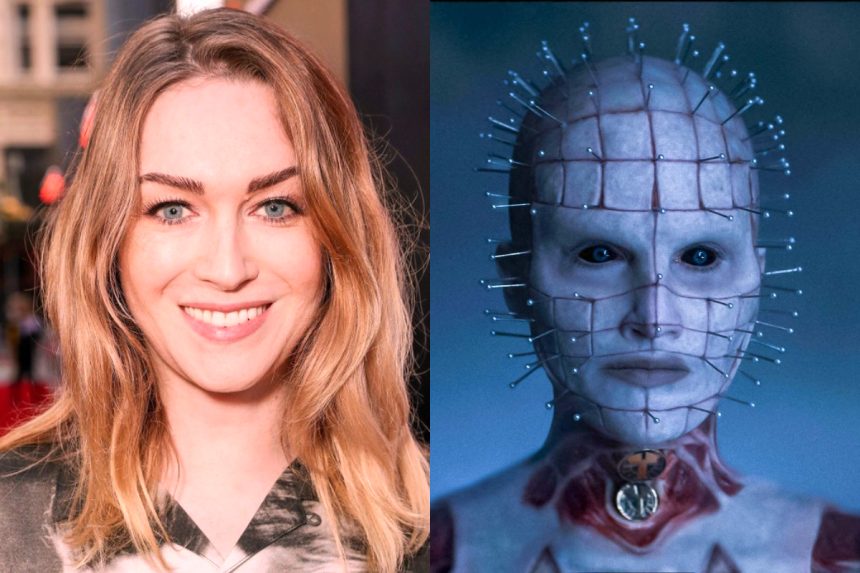Hulu ‘Hellraiser’ 2022 isn’t as good as the original or its first sequel, but it’s easily the finest franchise entry since.
The lore surrounding the franchise’s iconic puzzle box and the demonic Cenobites it can bring forth has always been the highlight of any given Hellraiser project since Clive Barker’s original source novella The Hellbound Heart – and that’s especially true with Hulu’s new remake of the series’ 1987 cinema debut.
The 11th overall film in the Hulu ‘Hellraiser’ 2022 franchise, directed by David Bruckner (The Ritual, The Night House) and written by Ben Collins and Luke Piotrowski (Super Dark Times, The Night House) based on a story written between them and David S. Goyer (Christopher Nolan’s Batman trilogy), centers on Riley (Odessa A’zion), a financially struggling former drug addict who has been clean for six months.
Hulu ‘Hellraiser’ 2022 review
Riley is surrounded by her brother Matt (Brandon Flynn), his lover Colin (Adam Faison), and their roommate Nora (Aoife Hinds), all of whom Riley also lives with, as well as her own boyfriend Trevor (Drew Starkey), who appears to be a poor influence for someone in recovery.
Riley and Trevor steal into an abandoned storage container one night, hoping to find some type of treasure or, at the very least, something they can sell for a good price.
Instead, they discover the Lament Configuration, and as Riley touches the box, Matt vanishes. Things only get worse for her when she comes face to face with the Cenobites and the horrifying delights they bring.
Meanwhile, a wealthy man named Roland Voight (Goran Visnjic), dissatisfied with man’s comforts, sets his sights on the box to experience its unique delights.
His character development is the most intriguing, as not only does he have the greatest contact with the numerous configurations of the box, but it also provides you an insight into the Cenobites’ true objectives.
In the end, what happens to Roland is horrifying and ugly, yet it is ultimately his own.
Jamie Clayton plays Pinhead (or The Priest, to be more precise), channeling Doug Bradley’s landmark interpretation of the role without feeling like a carbon duplicate.
While the recognizable pins are present and used in the film, the changes to her appearance from the original version are welcome, with specific pieces of her flesh intricately sliced and ripped away in order to reveal her underlying muscle tissue, all the while a mysterious keyhole or locket lodged in her neck leaves you wondering what would happen if it was ever opened.
The feminine side of Clayton’s Pinhead is especially intriguing because it implies that her interpretation of pleasure surpasses human comprehension, as well as her threshold for suffering.
At the end of the night, this is a genuinely strong, memorable, and intellectual female character that completely dominates her surroundings. However, none of the other characters in the film are very appealing or have redeemable traits.
Riley eventually succumbs to her addiction and seeks an easy way out of her situation, Matt is revealed to be an obsessive and overbearing douchebag of a brother, and Colin, while attempting to be the voice of reason, is simply too weak and clingy to follow through on the words that come out of his mouth.
Trevor, in particular, is a giant piece of trash, as seen by his plowing Riley during the film’s title sequence. It’s a character trait that plays into the film’s plot, but he’s loud, whiny, and controlling even when he shouldn’t be.
He also supports Riley’s aforementioned relapse while boasting that he knows what to do in every case. He is the absolute worst.
But perhaps that’s the point: to make the victims so dislikeable that you can’t help but root for their deaths.
Even the film’s other Cenobites, such as the revamped version of The Chatterer and newcomers The Gasp and The Weeper, don’t seem to have anything to do.
Showing up for one cool sequence or to provide a few lines of conversation, they are all either rarely seen again or utterly forgotten about. Hellraiser isn’t as good as the original or its first sequel, Hellraiser II: Hellbound, but it’s easily the best chapter in the franchise after those two.
It has pacing and plot flaws, and it feels like it takes forever to get to more involved Cenobite action than a quick cameo appearance, but Jamie Clayton’s powerful acting and some surprisingly solid gore make for a commendable take on Barker’s creation.





